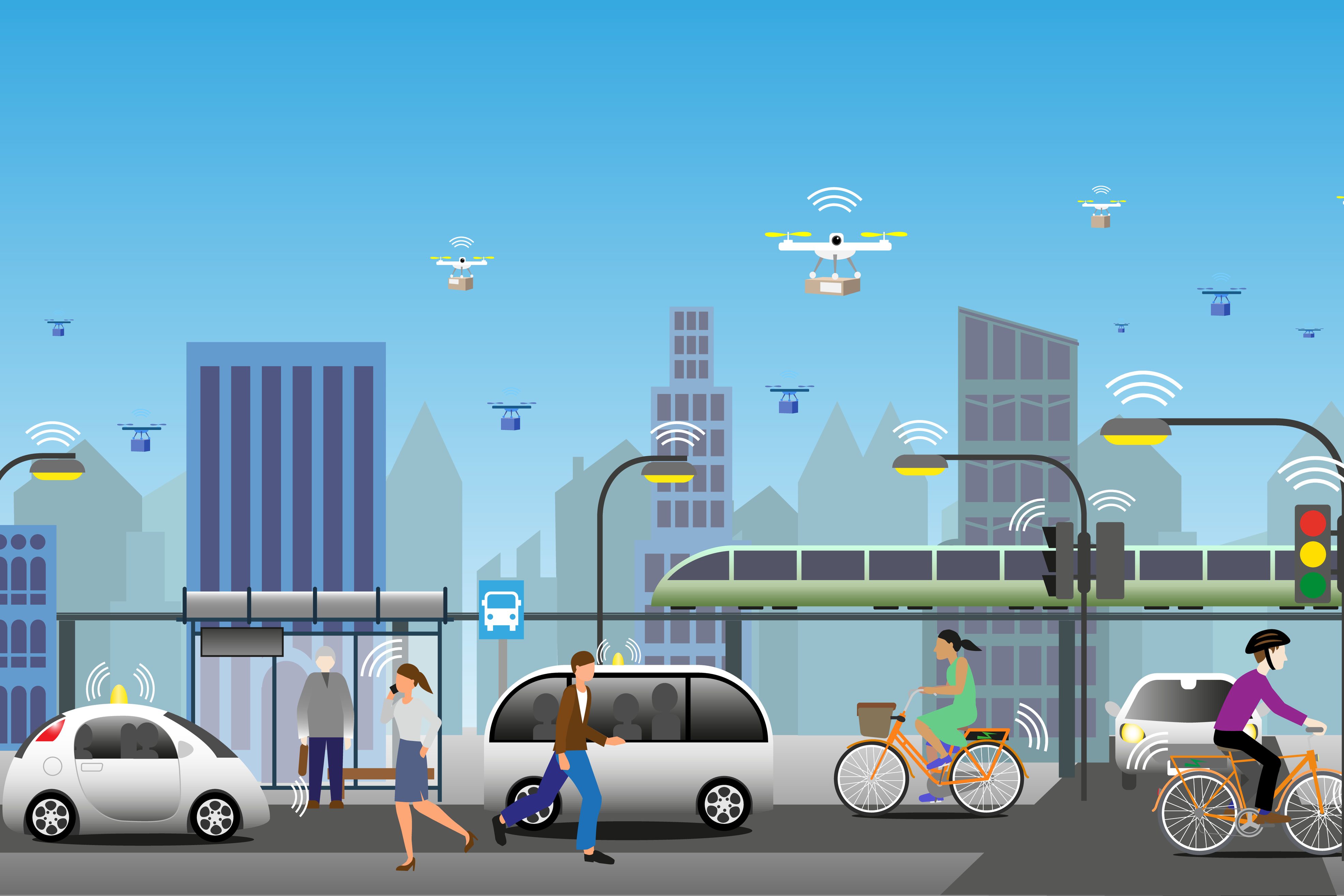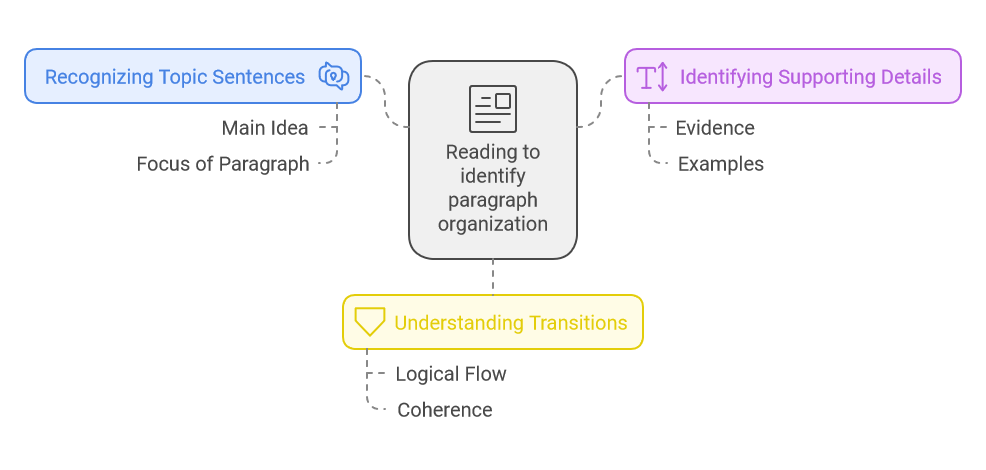Reading Comprehensin
Topic outline
-
Semester: 01
Teaching Unit: Methodology
Module: Reading Comprehension
Credits: 4
Coefficient: 2
Room: R2 (Department of English, University of Tlemcen)
Teachers: Dr.Kherbache Fatma
Email: fatima.kherbache@univ-tlemcen.dz
Office Hours: Thursday (09:00-10:30) -
-
- Help students read more fluently and efficiently by improving their ability to decode and comprehend quickly.
- Help students identify and apply different reading strategies such as skimming, scanning,
predicting, and inferring to enhance their comprehension.
- Expand students' vocabulary through exposure to new words within texts.
- Encourage students to analyse, interpret, and critically engage with various texts, forming their
own opinions and arguments.
-
-
- Students should be at least at a lower-intermediate level in English
-
Semester: 01
Reading skills and strategies
Semester: 02
Reading to identify paragraph organization
N.B Content can be developed by the pedagogical committee according to students’ needs
-
-
TD/ CC Assessment
100% continuous Assessment
-
Internet access good for our health
A new study says Internet access is good for our health. A report from the Oxford Internet Institute in the UK suggested that being connected to the worldwide web has a positive effect on our well-being. Researchers looked at data on people's Internet use and mental health from 168 countries. The data was gathered between the years 2006 and 2021. It included information on two million people aged 15 to 99. The research team looked at eight factors that affect people's well-being. These included life satisfaction, positive experiences and happiness with social life. The team found that people with Internet access were eight per cent happier than those without web access.
The research included some surprising conclusions. One was the suggestion that Internet access had a similar, positive effect to walking in nature. It helps people to learn new things, practice hobbies, watch movies, and make new friends. However, the research did not look at how social media impacted people's lives. Many recent studies show that social media is having a negative effect on people's mental health. Researcher Tobias Dienlin said: "The study cannot contribute to the recent debate on whether or not social media use is harmful, or whether or not smartphones should be banned at schools." He added that: "Different channels and uses of the Internet have vastly different effects on well-being."https://breakingnewsenglish.com
-

-
1) The research in the article is from Oxford University. T / F
2) Researchers looked at information on peoplein 168 countries. T / F
3) Researchers looked at data on 2,000,000 people aged up to 99. T / F
4) The study stated that people with Internet access were 8% happier. T / F
5) There were no surprising conclusions in the research. T / F
6) The research suggested Internet access waslike walking in nature. T / F
7) The research found that social media does alot of harm. T / F
-
Synonym Match
(The words in bold are from the news article.)
1. good a. bad
2. effect b. collected
3. gathered c. contentment
4. factors d. findings
5. happiness e. damaging
6. conclusions f. points
7. negative g. beneficial
8. debate h. greatly
9. harmful i. discussion
10. vastly j. impact
-
Phrase Match
1. A report from the a. affect people's well-being
2. a positive effect b. new friends
3. eight factors that c. life
4. positive d. surprising conclusions
5. social e. vastly different effects
6. The research included some f. on our well-being
7. a similar, positive effect g. should be banned
8. make h. Oxford Internet Institute
9. whether or not smartphones i. to walking in nature
10. uses of the Internet have j. experiences
-
Paragraph Writing
What do you think of the Internet?
-
-
London
London (the largest city in Europe) dominates Britain. It is home for the headquarters of all government departments, Parliament, the major legal institutions and monarch. It is the country’s business and banking centre and the centre of its transport network. It contains the headquarters of the national television networks and of all the national newspapers. It is about seven times larger than any other city in the country. About a fifth of the total population of the UK lives in the Greater London area.
The original walled city of London was quite small. (It is known colloquially today as ‘the square mile’.)It did not contain Parliament or the royal court, since this would have interfered with the autonomy of the merchants and traders who lived and worked there. It was in Westminster, another ‘city’ outside London’s wall, that these national institutions met. Today, both ‘cities’ are just two areas of central London. The square mile is home to the country’s main financial organizations, the territory of the stereotypical English ‘city gent’. During the daytime, nearly a million people work there, but less than 8,000 people actually live there.
Like many large cities, London is in some ways untypical of the rest of the country in that it is so cosmopolitan. Although all of Britain’s cities have some degree of cultural and racial variety, the variety is by far the greatest in London. A survey carried out in the 1980s found that 137 different languages were spoken in the homes of just one district.
In recent years it has been claimed that London is in decline. It is losing its place as one of the world’s biggest financial centres and, in comparison with many other western European cities, it looks rather dirty and neglected. Nevertheless, its popularity as a tourist destination is still growing. And it is not only tourists who like visiting London-the readers of Business Traveller magazine often vote it their favourite city in the world in which to do business. This popularity is probably the result of its combination of apparently infinite cultural variety and a long history which has left many visible signs of its richness and drama.
O’Driscoll, J (2009) Britain for Learners of English (second edition). Oxford
-

-
Comprehension Questions
a- What is this text about?
b- Does the capital city of your country stand in the same relation to the rest of the country as London does to Britain?
c- What is the main difference mentioned in this text between the city of London nowadays and in the past.
-
Ask Questions
Here are the answers.Ask questions.
a- No, it didn’t contain Parliament or the royal court.
b- Because this wouldhave interfered with the autonomy of the merchants and traders who lived and worked there.
-
True/False
a- In contemporary years London has seen a steady upturnin its monetary system.
b- Similar to other cities, London is the most tremendous one which contains people from different countries.
c- The city of London dominates Britain because of its many banks and financial businesses.
-
Word Explanation
Explain the following words and give an example for each: headquarters – institution - city gent – colloquial.
-
-
Irregular sleep patterns cause 'social jet lag'
The effects of social jet lag are like those of jet lag we get after long airline flights. Jet lag is extreme tiredness and other physical effects caused by flying across different time zones. After a long flight, sufferers often opt for unhealthy comfort foods. Social jet lag can be more problematic, as it is in grained in our daily routines. It can elevate the risk of diabetes, heart problems, and weight gain. The researchers say a 90- minute difference between sleeping and waking times can send the body's biological rhythms into disarray. Another nutritionist said: "Maintaining regular sleep patterns…is an easily adjustable lifestyle behaviour we can all do, that may impact your health via your gut…for the better."
breakingnewsenglish.com
-

-
Oral Task
- Speak about sleep patterns to each other
- In pairs or groups, talk about these topics or words from the article. What will the article say about
them? What can you say about these words and your life?
sleeping pattern / health / nutrition / abundance / bacteria / gut / jet lag / scientist / airline /flights /flying /time zones / comfort foods / rhythms / lifestyle / behaviour
-
Word
Meaning
1. Adverse
a. The branch of science that deals with looking at how good the food we eat is.
2. journal
b. A very large quantity of something.
3. abundance
c. Changing in character or composition, usually in a comparatively small but
significant way
4. gut
d. Preventing success or development; harmful.
5. altering
e. The action of eating or drinking something.
6. consumption
f. A newspaper or magazine that deals with a particular subject or professional activity.
7. nutrition
g. Stomach.
-
True/False
1. The article says we all need eight hours a night's sleep. T/F
2. Irregular sleeping patterns kill bacteria in our gut. T/F
3. The article says shift work is very bad for us. T/F
4. A researcher said social jet lag leads to a poorer diet. T/F
5. The article compares social jet lag to get lag after flying. T/F
6. The article says social jet lag could be more harmful than flying. T/F
7. A 90-minute difference in waking time could harm our body clock. T/F
8. A nutritionist said it wasn't easy to adjust our lifestyle. T/F
-
Synonym Match
1. regular a. confusion
2. adverse b. eating
3. abundance c. fatigue
4. consumption d. harmful
5. species e. increase
6. tiredness f. uniform
7. ingrained g. types
8. elevate h. stomach
9. disarray i. profusion
10. gut j. entrenched
-
Comprehension Questions
1. What could not having a regular sleeping pattern adversely impact?
2. Where could harmful bacteria increase?
3. What does altering sleeping times cause a shift in?
4. What does social jet lag make people eat more of?
5. What is the job of the study author Dr Kate Bermingham?
6. What does the article compare social jet lag to?
7. What do people choose to eat after a long flight?
8. What can social jet lag increase the risk of besides heart problems?
9. What could a 90-minute difference in waking times affect?
10. What did a nutritionist say about maintaining regular sleep patterns?
-
Free Writing
What's your sleeping pattern like?
-
-
Public Transport in Towns and Cities
Public transport services in urban areas (in Britain), as elsewhere in Europe, sufferfrom the fact that there is so much private traffic on the roads thatthey are not as cheap,as frequent or as fast as they otherwise couldbe. They also stop running inconveniently early at night. Efforts havebeen made to speed up journey times by reserving certain lanes forbuses, but so far there has been no widespread attempt to givepriority to public transport vehicles at traffic lights.
An interesting modern development is that trams, which disappeared from the country's towns during the 1950s and 1960s, are now making a comeback. Research has shown that people seem to have more confidence in the reliability of a service which runs on tracks, and are therefore readier to use a tram than they would be to use an ordinary bus.
Britain is one of the few countries in Europe where double-decker buses (i.e. with two floors) are a common sight. Although single-deckers have also been in use since the 1960s, London still has more than 3,000 double-deckers in operation. In their original form they were 'hop-on, hop-off ' buses. That is, there were no doors, just an opening at the back to the outside .There was a conductor who walked around collecting fares while the bus was moving. However, most buses these days, including double-deckers, have separate doors for getting on and off and no conductor (fares are paid to the driver).
The famous London Underground, known as ' the tube', is feeling the effects of its age (it was first opened in 1863). It is now one of the dirtiest and least efficient of all such systems in European cities. However, it is still heavily used because it provides excellent connections with the main line train stations and with the suburbssurrounding the city.
O’Driscoll, J (2009) Britain for Learners of English (second edition). Oxford
-

-
Comprehension Questions
a- What is the general idea of this text?
b-Do the British prefer the bus as a means of transport? Why?
c- What does the following expression mean?
‘The famous London Underground, known as ' the tube', is feeling the effects of its age’.
-
True/False
- The private traffic in Britain is not expensive, frequent and fast.
- The original and newdouble-decker buses in Britain are alike.
-
Word Explanation
Explain the underlined words in the text.
-
Word Synonym
Find the corresponding words for these definitions (from the text).
a. The money that you pay to travel by bus, taxi, train, etc.
b.Gives something to somebody or makes it available to use.
-
Paragraph writing
Speak about transport difficulties in your daily life.
-
-



